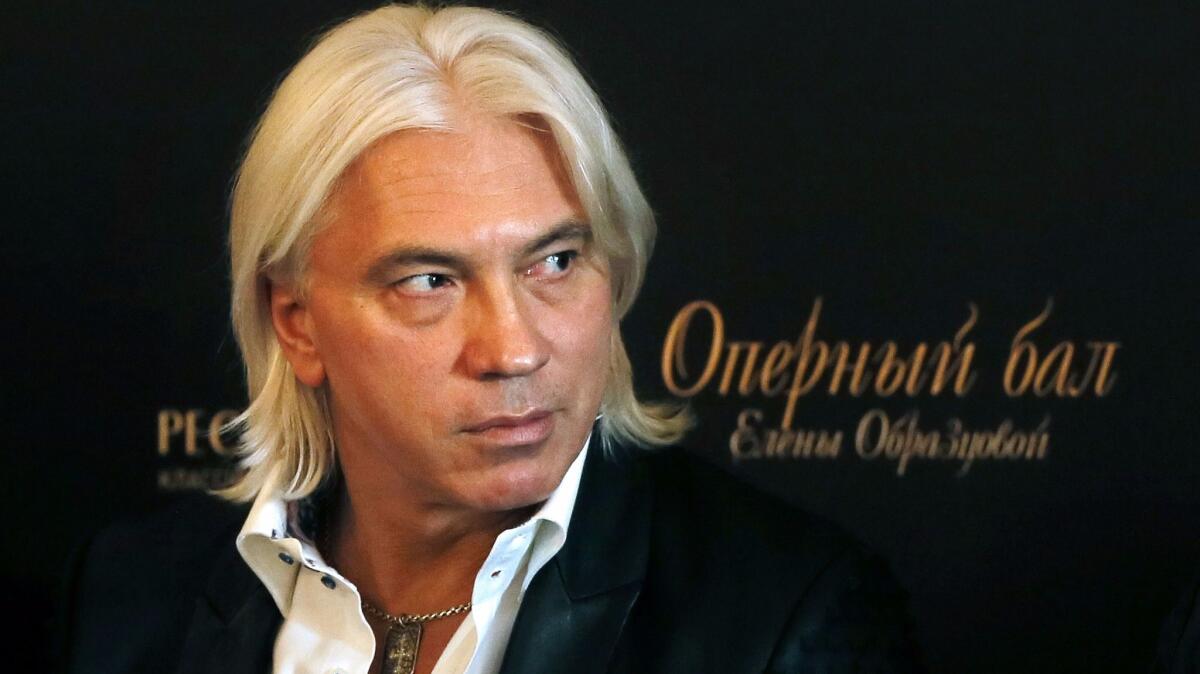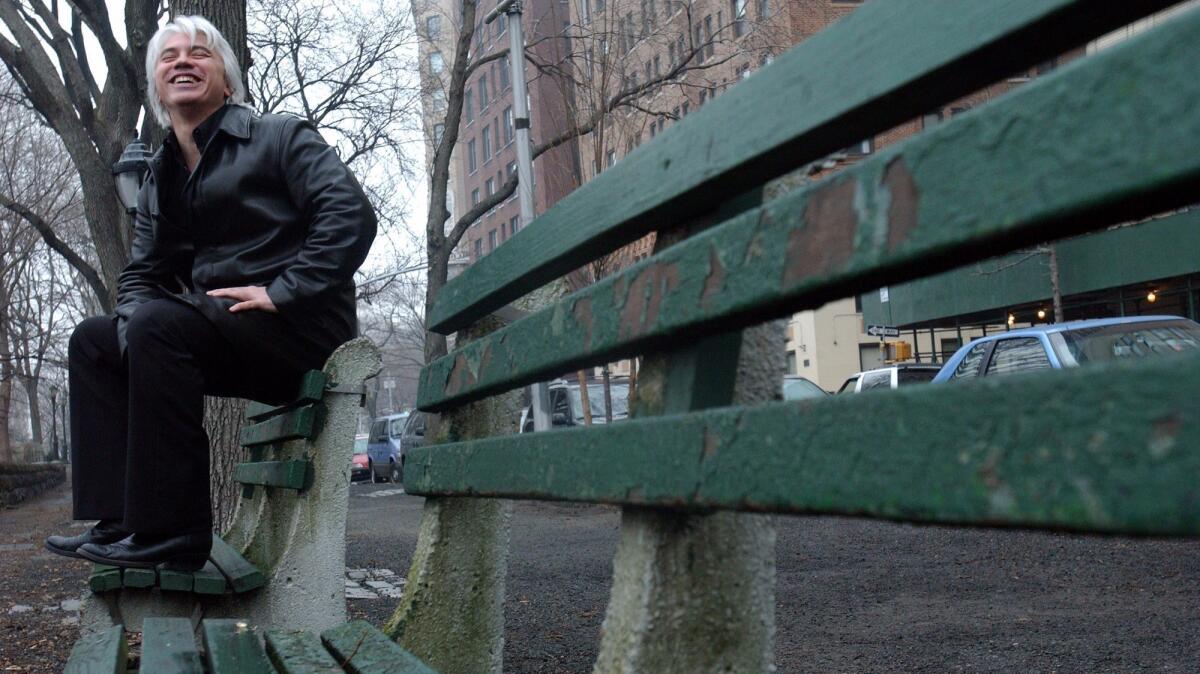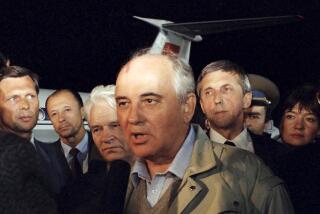Dmitri Hvorostovsky, ‘the Elvis of Opera’ and the voice of a generation, dies at 55

Reporting from Moscow — Dmitri Hvorostovsky, the Russian baritone known for his velvety voice, dashing looks and shock of flowing white hair, died Wednesday at a hospice near his home in London, several years after he was diagnosed with a brain tumor. He was 55.
Called “the Elvis of Opera” and the “Siberian Express” by some, Hvorostovsky announced in June 2015 that he had been diagnosed with the tumor. He returned to New York’s Metropolitan Opera three months later to sing the Count di Luna in Verdi’s “Il Trovatore” and was greeted with a loud and lengthy ovation that caused him to break character. Musicians in the orchestra threw white roses during the curtain calls.
Despite his illness, he sang in Tchaikovsky’s “Eugene Onegin” at London’s Royal Opera that December, in Verdi’s “Simon Boccanegra” and “Un Ballo in Maschera “ at the Vienna State Opera the following spring and gave his final four staged opera performances as Giorgio Germont in Verdi’s “La Traviata” in Vienna, the last on Nov. 29 last year. He announced the following month that balance issues had caused him to cancel future opera appearances.
“Dima was a truly exceptional artist -- a great recitalist as well as a great opera singer, which is rare,” said soprano Renee Fleming, who teamed with Hvorostovsky for a memorable run of “Onegin” among their many performances.

Hvorostovsky made a dramatic unscheduled appearance at the Met in May for a gala celebrating the 50th anniversary of the company’s move to the Lincoln Center for the Performing Arts. Walking stiffly, looking thin and with his cheekbones more pronounced, Hvorostovsky received a standing ovation and lit into Rigoletto’s second-act aria “Cortigiani, vil razza dannata.” Some in the audience had tears in their eyes.
His last public concerts were June 22 and 23 at the Grafenegg Festival in Austria. In September, he was awarded the Order of Merit for the Fatherland by Russia President Vladimir Putin for contributions to the nation’s art and culture.
“Words cannot express my anguish that one of the greatest voices of our time has been silenced,” tenor Placido Domingo said. “Dmitri’s incomparably beautiful voice and peerless artistry touched the souls of millions of music lovers. His passing will be mourned by his countless admirers around the world and by those of us who were fortunate to know him.”
The Met dedicated Friday’s performance of Verdi’s Requiem to Hvorostovsky while the Vienna State Opera scheduled a minute of silence before Wednesday’s performance of Strauss’ “Salome.”
“It is with heavy hearts that we share the news that Dmitry Hvorostovsky has died,” LA Opera tweeted. “He will be greatly missed.”
Hvorostovsky was born on Oct. 16, 1962, and grew up in Krasnoyarsk, in central Siberia. He started piano lessons when he was 7, only for his first piano teacher to tell him he was untalented. At Krasnoyarsk Pedagogical School and Krasnoyarsk High School of Arts, he thrived in music, boxing and soccer. “Apart from this, I was the worst pupil in school,” he said.
He became a soloist at the Krasnoyarsk Opera in 1986, won the Russian Glinka National Competition, then attracted attention by winning vocal contests at Toulouse, France, in 1988 and then Cardiff in 1989 -- where he beat out Welsh bass-baritone Bryn Terfel for the top prize.
With long hair that turned prematurely silver before he was 35 and his arm tattoos, he was instantly recognizable. Hvorostovky’s public musical persona started with a rock ‘n’ roll band, when he was a teenage rebel under communism.
“Ah! Freedom! So what could I do?” he remembered in a 1998 interview. “I had a few options -- to become a street fighter, or I could become a hero in front of my girlfriends.”
He is survived by his wife, Florence Hvorostovsky; their son and daughter, Maxim and Nina; and twins, Alexandra and Daniel from his first marriage.
More to Read
Start your day right
Sign up for Essential California for the L.A. Times biggest news, features and recommendations in your inbox six days a week.
You may occasionally receive promotional content from the Los Angeles Times.






